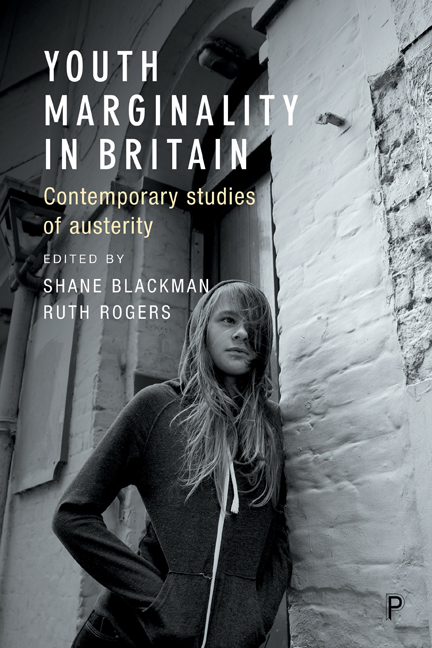fourteen - On the margins: the last place to rebel? Understanding young people's resistance to social conformity
Published online by Cambridge University Press: 05 April 2022
Summary
Introduction
Young people have for decades been the subject of repeated ‘moral panics’ (Cohen, 2002) in Western society. From the troubles of the ‘teenager’ in the early post-war period, the mods and rockers of the sixties, the anarchic punk subculture of the seventies, through to the most recent moral panic of the ‘NEET’ (not in employment, education or training) generation, there has been an apparent tension between the empowerment and subjugation of young people. This has manifested itself through discourses of children's rights, voice and participation, and the competing discourses of failure, risk and problematisation.
The media portrayal that fuels the moral panic of unruly and out-ofcontrol young people portrays them as frightening not only to other members of society, but also to one another (The Independent, 2009). This sense of moral panic around young people relates closely to the ownership of public spaces and what has been perceived as young people's ‘disruptive use of public space’, whereby young people are accused of disrupting spaces in parks, on estates, on playing fields and on street corners (Robinson, 2009, p510).
In contrast, this chapter considers how young people themselves understand and view their position in relation to their social environment. It also offers an illustration of the complex and unintended ways in which young people are marginalised in everyday life. Marginalisation is not considered as an end-product of social dysfunction; rather, it emerges as a process, by which the young people themselves may negotiate their position in different social situations in order to effect autonomy and self-determination, even within the smallest and most mundane activities.
Drawing on Erikson (1972), we consider what Erikson refers to as the ‘leeway of mastery in a set of developments or circumstances’, which suggests ‘free movement within prescribed limits’ (p691) – a literal translation being space of, or space for, play; what the rules of the game allow. The concept of social play is an important feature of Erikson's work and relates to the fifth stage of psychosocial development: adolescence.
The importance of play in the early years is a well-rehearsed discussion. However, the concept of play in the transition stage from childhood to adulthood – adolescence – provokes a reconsideration of the ways in which young people explore and learn about themselves and their world.
- Type
- Chapter
- Information
- Youth Marginality in BritainContemporary Studies of Austerity, pp. 225 - 238Publisher: Bristol University PressPrint publication year: 2017

